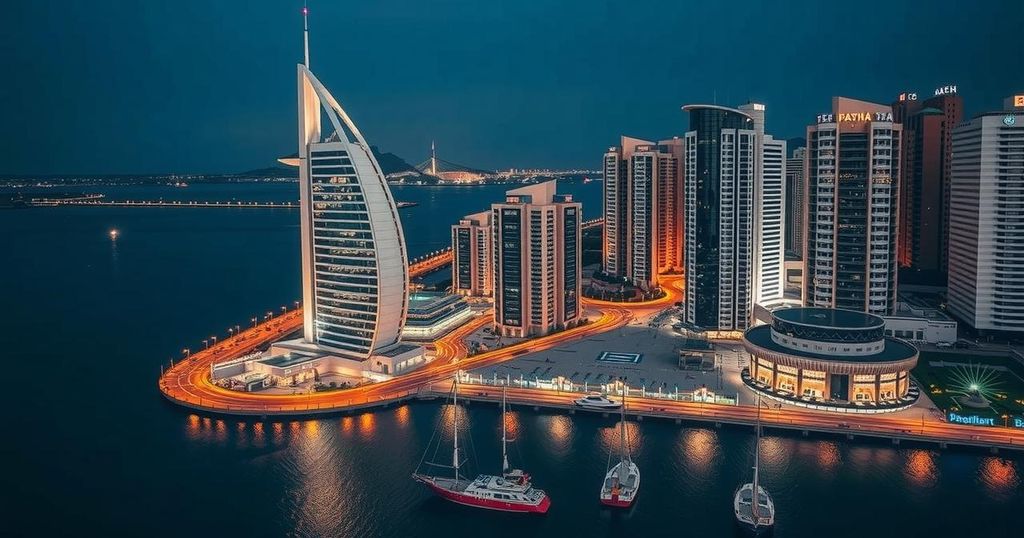Kazakhstan’s Officials and Their Dubai Holdings: A Call for Greater Transparency and Accountability
Kazakhstan faces scrutiny over the extensive real estate holdings in Dubai by former and current officials, with over 1,550 individuals identified by C4ADS. Despite government efforts towards asset repatriation and accountability, significant challenges persist, particularly concerning the former president’s family’s offshore assets. New legal frameworks and mandatory declarations are anticipated to foster transparency, yet effectiveness is questioned amidst longstanding issues of capital flight and financial secrecy in the UAE.
In Kazakhstan, a significant number of former and current officials are believed to possess real estate holdings in Dubai, raising questions regarding the legitimacy and disclosure of these assets. The U.S.-based Center for Advanced Defense Studies (C4ADS) has documented over 1,550 Kazakh nationals owning approximately 2,700 properties in Dubai, often linked to prominent political figures. Despite the rich opportunities offered by Dubai’s real estate market, especially in light of Kazakhstan’s lower rank in Rule of Law, the authorities in Kazakhstan have struggled with capital flight and asset repatriation. The current government under Qasym-Zhomart Toqaev has intensified efforts to address these issues, amidst scrutiny over money laundering practices in the UAE. However, key wealth holders, including the family of former president Nursultan Nazarbaev, continue to face little pressure over their foreign assets. The recent move towards mandatory asset declarations stands to expose illicit holdings, yet the execution remains fraught with challenges, and many citizens remain unaware of the public disclosures. Meanwhile, ex-officials who have acquired properties often cite legitimate business earnings, even as skepticism persists regarding the sources of funds used for such buys. The overarching concern remains: will accountability mechanisms lead to meaningful investigations regarding these overseas holdings?
The article discusses the significant ownership of Dubai properties by Kazakh officials and their families, highlighting concerns about potential illicit financial activities and the efficacy of Kazakhstan’s asset repatriation efforts. It references the C4ADS registry data that outlines extensive real estate holdings in the UAE, and how current government initiatives react to public calls for transparency and accountability in asset declarations. Furthermore, it details the implications of Kazakhstan’s poor ranking in global Rule of Law indices on investor choices, and the scrutiny in international financial standards, especially following the FATF’s identification of Dubai as a vulnerable jurisdiction to money laundering.
In conclusion, the situation surrounding the ownership of properties in Dubai by Kazakh officials and their families reflects deeper issues of transparency, accountability, and investigative rigor within Kazakhstan’s governance framework. Despite new laws aimed at asset declarations and a commitment to combating illegal capital flight, effective enforcement and public access to disclosed information remain significant hurdles. Reliance on self-declarations from public officials raises questions about genuine oversight, particularly regarding high-net-worth individuals and their often-questionable sources of wealth. Ultimately, effective measures must be enacted to ensure that property holdings, particularly in jurisdictions associated with financial secrecy, are scrutinized to uphold the principles of law and integrity in Kazakhstan’s governance.
Original Source: www.rferl.org




Post Comment